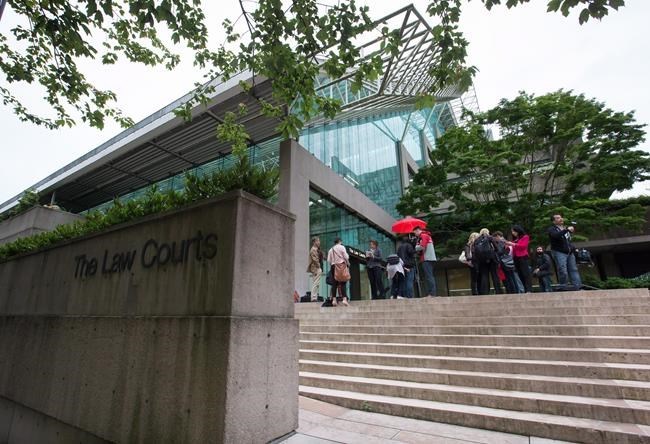VANCOUVER — A sexual assault expert testifying at the British Columbia Supreme Court trial of a man accused of killing a 13-year-old girl six years ago says she believes the girl's injuries were "highly indicative of blunt force trauma."
CAUTION: note graphic content in next three paragraphs.
Dr. Tracy Pickett, a doctor specializing in emergency and clinical forensic medicine, says it is unlikely those injuries, to the girl's vagina, came from a small object such as a tampon, and is more consistent with penial penetration.
She told the jury she was not at the autopsy and didn't see the body in person, but formed her expert opinion from photos and pathologist notes, including descriptions of the injuries in the autopsy report.
She says injuries to the rectum and anus are also consistent with "completed penetration."
Ibrahim Ali has pleaded not guilty to first-degree murder in the death of the teen, whose body was found in Burnaby's Central Park early on July 19, 2017, just hours after her mother reported her missing.
Crown attorney Isobel Keeley said in an opening statement at the trial in April that DNA results would prove that Ali sexually assaulted the girl, whose name is protected by a publication ban.
Keeley said the evidence would show the girl was passing through the park when she was dragged off a pathway into the forest by Ali, sexually assaulted and strangled.
Crown witness and RCMP forensic biologist Christine Crossman testified last week that only the DNA of Ali and the girl were detected from swabs of her vaginal area, where sperm cells matched Ali’s DNA.
Crossman said the odds that someone other than Ali also had DNA matching that found on the girl's body was one-in-72-quintillion, with 18 zeros.
While the defence has not yet told the jury its theory of events, Kevin McCullough concluded his cross-examination of Crossman on Friday, focusing on the fact that Ali's genetic profile only matched samples from the 13-year-old girl's vaginal and anal areas.
McCullough asked Crossman to confirm that several pieces of evidence were not tested for DNA, including the girl's stained clothing, which could have established another suspect in the case.
He also suggested it wasn't Crossman's role as a scientist to consider whether the person who "had either forced sex or sex" with the girl was the person who killed her. Crossman agreed it had "nothing to do" with what she does.
The defence has not yet cross-examined Pickett. Her direct examination by Crown counsel is expected to continue Tuesday.
This report by The Canadian Press was first published Sept. 18, 2023.
Brieanna Charlebois, The Canadian Press



